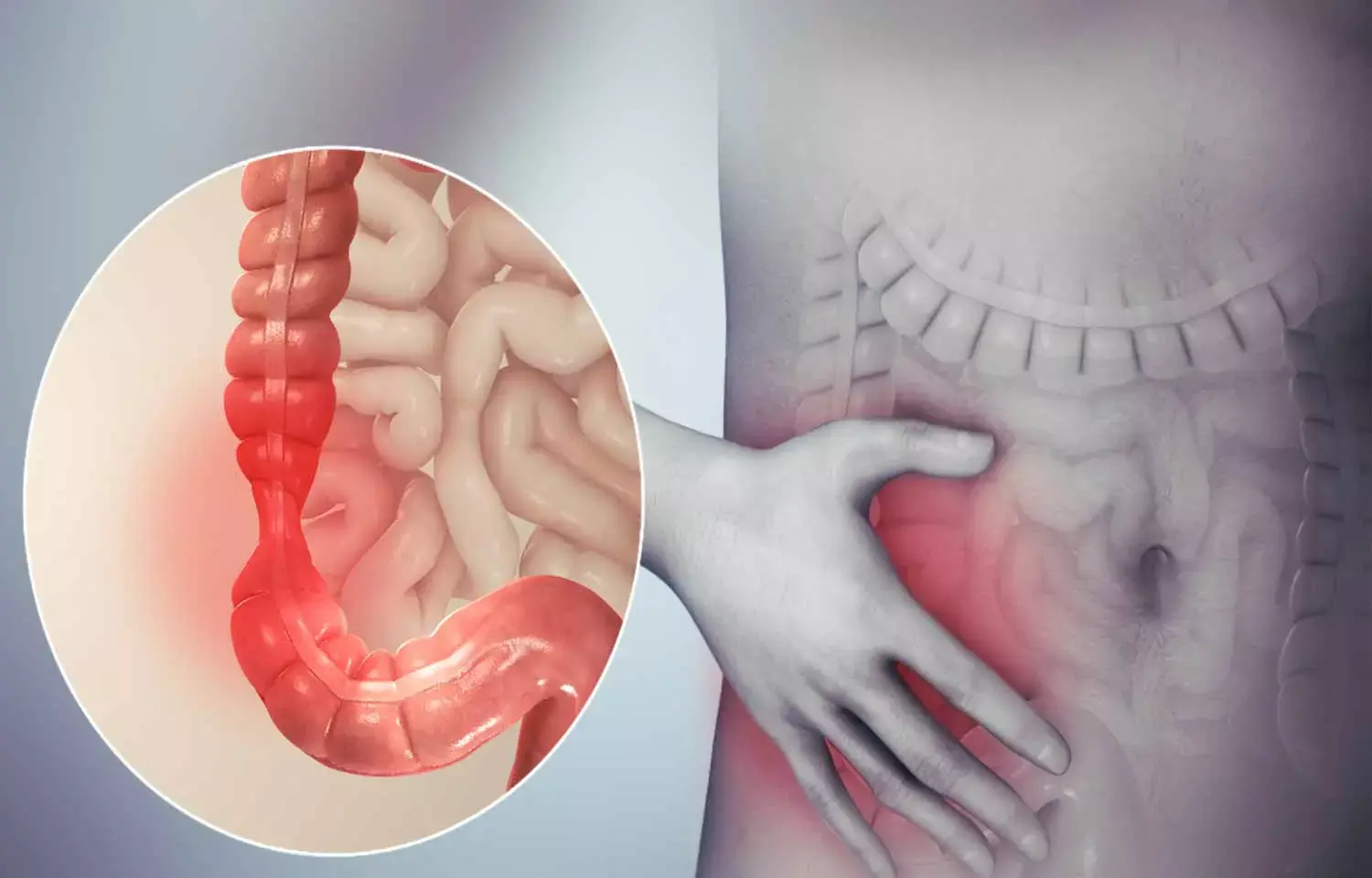- Home
- Medical news & Guidelines
- Anesthesiology
- Cardiology and CTVS
- Critical Care
- Dentistry
- Dermatology
- Diabetes and Endocrinology
- ENT
- Gastroenterology
- Medicine
- Nephrology
- Neurology
- Obstretics-Gynaecology
- Oncology
- Ophthalmology
- Orthopaedics
- Pediatrics-Neonatology
- Psychiatry
- Pulmonology
- Radiology
- Surgery
- Urology
- Laboratory Medicine
- Diet
- Nursing
- Paramedical
- Physiotherapy
- Health news
- Fact Check
- Bone Health Fact Check
- Brain Health Fact Check
- Cancer Related Fact Check
- Child Care Fact Check
- Dental and oral health fact check
- Diabetes and metabolic health fact check
- Diet and Nutrition Fact Check
- Eye and ENT Care Fact Check
- Fitness fact check
- Gut health fact check
- Heart health fact check
- Kidney health fact check
- Medical education fact check
- Men's health fact check
- Respiratory fact check
- Skin and hair care fact check
- Vaccine and Immunization fact check
- Women's health fact check
- AYUSH
- State News
- Andaman and Nicobar Islands
- Andhra Pradesh
- Arunachal Pradesh
- Assam
- Bihar
- Chandigarh
- Chattisgarh
- Dadra and Nagar Haveli
- Daman and Diu
- Delhi
- Goa
- Gujarat
- Haryana
- Himachal Pradesh
- Jammu & Kashmir
- Jharkhand
- Karnataka
- Kerala
- Ladakh
- Lakshadweep
- Madhya Pradesh
- Maharashtra
- Manipur
- Meghalaya
- Mizoram
- Nagaland
- Odisha
- Puducherry
- Punjab
- Rajasthan
- Sikkim
- Tamil Nadu
- Telangana
- Tripura
- Uttar Pradesh
- Uttrakhand
- West Bengal
- Medical Education
- Industry
Periopeative Intravenous lidocaine infusion enhances bowel recovery in patients undergoing laparoscopic renal surgeries: Study

Contemporary healthcare seeks to minimize complications, expedite recovery, and improve prognoses, prompting the integration of Enhanced Recovery After Surgery (ERAS) across a range of laparoscopic procedures. Recent randomized, double-blind, placebo-controlled trial that evaluated the role of intravenous lidocaine (IVL) infusion in enhancing bowel recovery after laparoscopic renal surgeries. The study included 80 patients who underwent various laparoscopic renal procedures, including nephrectomy, pyeloplasty, partial nephrectomy, and pyelolithotomy.
Effect on Bowel Recovery
Patients were randomly divided into two groups - the lidocaine group (L) received an IVL bolus followed by continuous infusion, while the control group (C) received a placebo bolus and infusion. The researchers monitored the patients' bowel functions, total hospital stay, and total analgesic consumption. The results showed that the time to first bowel sound, first flatus, and first defecation was significantly shorter in the lidocaine group compared to the control group (16.4 vs 18.2 hours, 26.7 vs 32.3 hours, and 39.1 vs 43.3 hours respectively). The total hospital stay was also significantly reduced in the lidocaine group compared to the control group (4.0 vs 5.3 days). Additionally, the lidocaine group demonstrated better intraoperative hemodynamic stability, with lower heart rate, blood pressure, and need for the inhalational anesthetic sevoflurane. Postoperative pain scores were lower and opioid consumption (both intraoperative fentanyl and postoperative nalbuphine) was reduced in the lidocaine group compared to the control group. The incidence of postoperative nausea and vomiting was also lower in the lidocaine group.
Conclusion and Implications
The researchers concluded that the perioperative use of IVL infusion can enhance bowel recovery and shorten the total hospital stay in patients undergoing laparoscopic renal surgeries. The lidocaine infusion also provided other benefits such as improved hemodynamic stability, reduced anesthetic requirements, and better pain control with lesser opioid consumption. These findings suggest that IVL can be an important component of enhanced recovery after surgery (ERAS) protocols for laparoscopic renal procedures.
Key Points
Here are the 6 key points from the research paper:
1. This was a randomized, double-blind, placebo-controlled trial that evaluated the use of intravenous lidocaine (IVL) infusion to enhance bowel recovery after laparoscopic renal surgeries.
2. The study included 80 patients who underwent various laparoscopic renal procedures, including nephrectomy, pyeloplasty, partial nephrectomy, and pyelolithotomy.
3. Patients were randomly divided into a lidocaine group (L) that received an IVL bolus and continuous infusion, and a control group (C) that received a placebo.
4. The results showed that the lidocaine group had a significantly shorter time to first bowel sound, first flatus, and first defecation compared to the control group. The total hospital stay was also significantly reduced in the lidocaine group.
5. The lidocaine group demonstrated better intraoperative hemodynamic stability, lower postoperative pain scores, reduced opioid consumption, and a lower incidence of postoperative nausea and vomiting.
6. The researchers concluded that the perioperative use of IVL infusion can enhance bowel recovery and shorten the total hospital stay in patients undergoing laparoscopic renal surgeries, and that IVL can be an important component of enhanced recovery after surgery (ERAS) protocols for these procedures.
Reference –
Prajapati DJ, Patel M, Patel P, Ganpule A, Mistry D. The role of intravenous lidocaine infusion in enhanced recovery after laparoscopic renal surgeries: A randomized control trial. J Anaesthesiol Clin Pharmacol 2024. DOI:10.4103/joacp.joacp_98_23
MBBS, MD (Anaesthesiology), FNB (Cardiac Anaesthesiology)
Dr Monish Raut is a practicing Cardiac Anesthesiologist. He completed his MBBS at Government Medical College, Nagpur, and pursued his MD in Anesthesiology at BJ Medical College, Pune. Further specializing in Cardiac Anesthesiology, Dr Raut earned his FNB in Cardiac Anesthesiology from Sir Ganga Ram Hospital, Delhi.
Dr Kamal Kant Kohli-MBBS, DTCD- a chest specialist with more than 30 years of practice and a flair for writing clinical articles, Dr Kamal Kant Kohli joined Medical Dialogues as a Chief Editor of Medical News. Besides writing articles, as an editor, he proofreads and verifies all the medical content published on Medical Dialogues including those coming from journals, studies,medical conferences,guidelines etc. Email: drkohli@medicaldialogues.in. Contact no. 011-43720751


